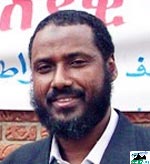UNHCR Calls For Help To Stop Abduction In East Sudan
On January 25, briefing reporters from the Palais des Nations in Geneva, UNHCR spokesperson Melissa Fleming described the dire circumstances in the Shegerab refugee camp of Eastern Sudan, which hosts tens of thousands of refugees, and the “rising incidents of abductions and disappearances of mainly Eritrean refugees.”
UNHCR reports that the disappearances from the camp are a mix of voluntary and involuntary–that is, in some cases, those who were in refugee camps arranged to be smuggled out and, in other cases, they were abducted. In 2012, there were at least 551 of such disappearances.
Over the last 5 years, hundreds of Eritreans have been brutally tortured, raped, had their organs extracted, or killed in the Egyptian Sinai. They have been held for ransom while their families, mostly in Europe and North America, are made to listen to screaming victims begging for help. The family members then are forced to raise exorbitant amounts of funds–$30,000 USD is not unusual–and, even then, the abductors may change their mind and demand more. In some cases, Eritrean mothers in Eritrea have sold every possession they have to raise the ransom money.
The abduction points fit one of the following patterns:
1. An Eritrean arranges with a smuggler in Eritrea to be smuggled across the Eritrea-Sudan border. The smuggler may sell the Eritrean to a human trafficker prior to reaching the border;
2. An Eritrean in Sudan may be abducted by human traffickers and held for ransom in the Egyptian Sinai;
3. An Eritrean in Sudan may make arrangements with a smuggler in Sudan to smuggle him/her to Egypt; the smuggler then hands over the Eritrean to a human trafficker who holds him for ransom.
Smuggling, contraband, human trafficking is a huge business. And, where there is money from illicit business, the Eritrean regime is not too far behind. The 2012 report of the UN’s Monitoring Group on Somalia and Eritrea included testimonies from Eritrean asylum seekers in Israel who had survived their ordeal in the Egyptian Sinai and, by 2011, numbered almost 60,000. Based on the testimonies of the Eritreans in Israel, the Monitoring Group reports that the culprits who were responsible for inflicting “physical and psychological torture” were from the Rashaida tribe or Bedouin Egyptians and that the masterminds behind the human trafficking network were Eritrean regime officials, and specifically General Teklai Kifle Manjus (who is, ironically, in charge of border security) and Colonel Fitsum Yishak and their intermediaries.
The trigger for the UNHCR’s recent briefing appears to be incidents of January 22 when four Eritrean women were abducted at night. The UNHCR says that in “anger at these incidents, some refugees attacked members of one of the local tribes who they thought were responsible for the abductions. The ensuing violence left several injured among the host population and the refugees. Calm has since been restored.” The UNHCR says that Sudan has dispatched additional police force.
Eritreans are organizing a demonstration in Berlin, Germany on January 29, to coincide with the arrival of Egyptian president Mohammed Morsi.
The UNHCR, or the United Nations High Commissioner for Refugees, is mandated by the UN General Assembly to” lead and co-ordinate international action to protect refugees” but, given its resources, and given the fact that the Shegerab refugee camp has been a home to Eritrean refugees since the mid-1960s, it may not be giving the issue the urgency it deserves. Our job, as Eritreans, is to make sure that it does.
Concerned Eritreans (Eritrean Youth for Solidarity and Change/Right Now) have initiated a petition to stop the human trafficking in Sinai. You can log in and sign the petition here:
http://www.change.org/petitions/take-action-to-stop-human-trafficking-in-sinai
awate.com
inform. inspire. embolden. reconcile.
You can reach us at: awateteam@gmail.com



Awate Forum